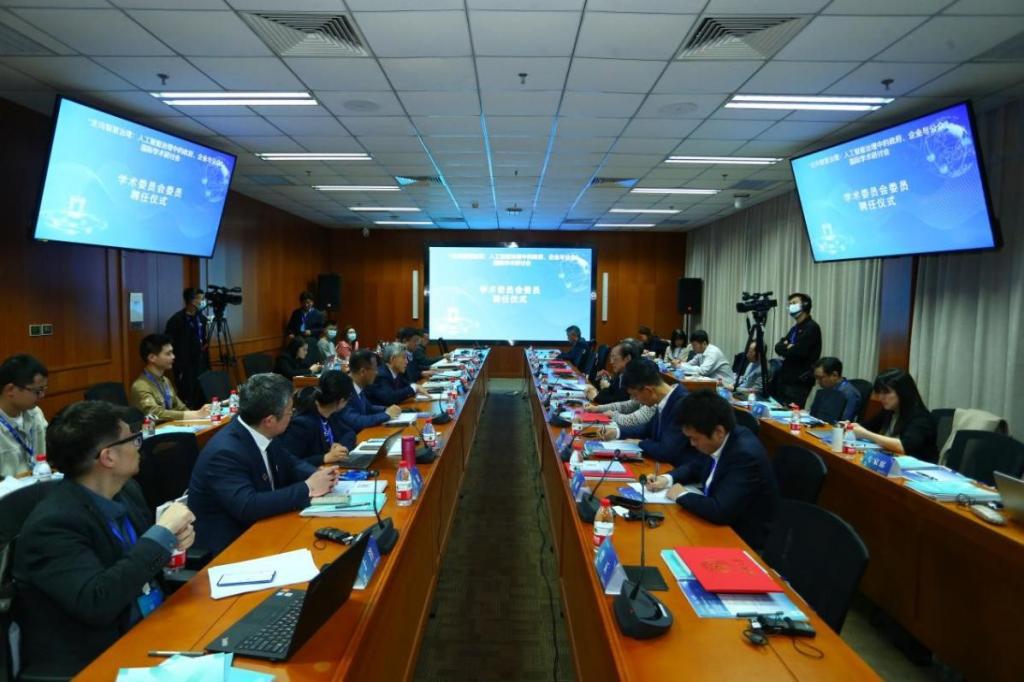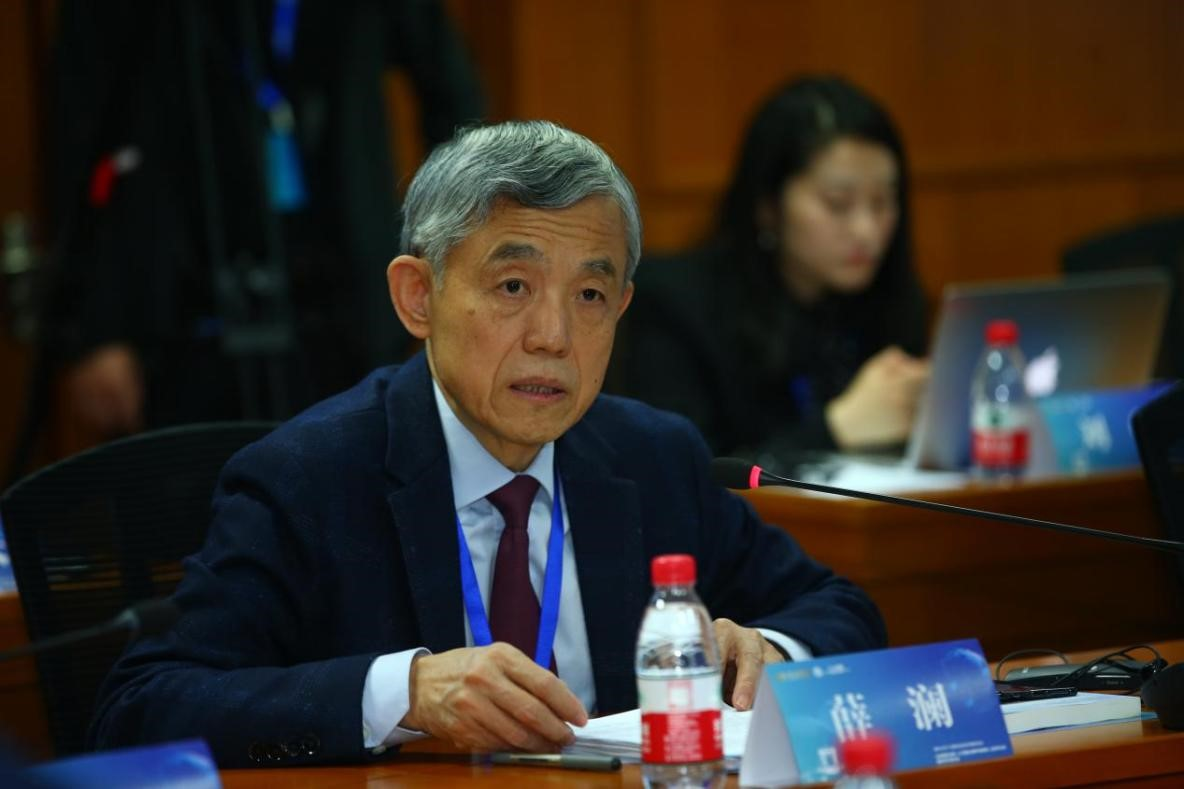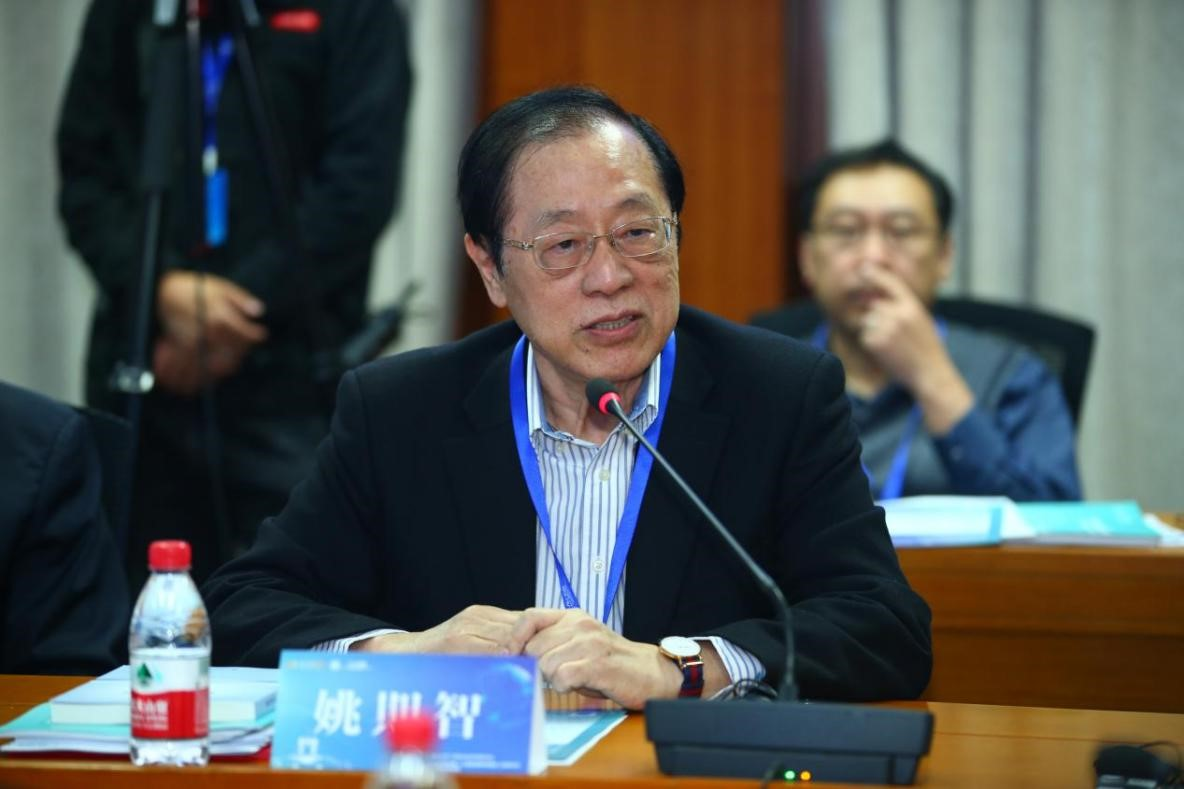
The Institute for AI International Governance (I-AIIG) of Tsinghua University holds a symposium on April 22, 2021 to discuss the role of government, enterprises, and the public in AI governance. [Photo courtesy of Tsinghua University]
The Institute for AI International Governance (I-AIIG) of Tsinghua University has vowed to address the ethical issues of AI technologies and help unleash AI's potential in a trustworthy, transparent, and responsible manner, according to a symposium held in Beijing on April 22.
The symposium, which discussed the role of government, enterprises, and the public in AI governance, marked one of a series of events held this week to celebrate the 110th anniversary of the founding of China's prestigious Tsinghua University.

I-AIIG Dean Xue Lan speaks at the symposium in Beijing on April 22, 2021. [Photo courtesy of Tsinghua University]
"The institute has always been dedicated to studying the advancement and application of AI technologies as well as its impact on the country, society, and human beings," said Xue Lan, dean of I-AIIG. "It also seeks to establish fair and reasonable governing systems and orders, while putting forward suggestions for how China should participate in global AI governance."
To improve Tsinghua's global academic influence and pool wisdom for China's participation in global AI governance, the institute has set up an academic committee in which AI masterminds around the world can work together and facilitate sci-tech research, policy consultation, and global communication.

Yang Bin, vice president of Tsinghua University and board director of I-AIIG, speaks at the symposium in Beijing on April 22, 2021. [Photo courtesy of Tsinghua University]
Yang Bin, vice president of Tsinghua University and board director of I-AIIG, hopes that such a committee can help explore new cooperative mechanisms for AI governance and better contribute to global AI development.
The institute also appointed leading experts in the fields of public policy, jurisprudence, ethics, and technology management to bring interdisciplinary views on the issue. Meanwhile, industrial leaders from major Chinese AI companies were appointed to help better translate academic research into practical applications.
Turing Award winner Andrew Chi-Chih Yao recognized the interdisciplinary nature of the institute. Yao, also an academician at the Chinese Academy of Sciences and dean of Tsinghua's Institute for Interdisciplinary Information Sciences, hoped that while the institute's main focus is on academic research, it should aim to serve national development and the public's welfare.

Andrew Chi-Chih Yao, an academician at the Chinese Academy of Sciences and dean of Tsinghua's Institute for Interdisciplinary Information Sciences, speaks at the symposium in Beijing on April 22, 2021. [Photo courtesy of Tsinghua University]
The approach of I-AIIG and Tsinghua University is in line with the Chinese government's overall AI governing policies. In the past few years, China has increasingly worked on how to develop responsible AI technologies for the future.
For example, back in May 2019 the Beijing AI Principles was published, setting ethical standards for AI research and seeking international cooperation on the issue. A month later, China's Ministry of Science and Technology issued a series of principles to better coordinate the development and governance of booming AI technology and ensure that it is secure, controllable, and reliable.
In addition, the need for regulation of AI technologies was addressed in Article 127 of China's Civil Code. The country's legislative efforts on the issue look to be renewed as it mulls the introduction of a new law to strengthen data security.